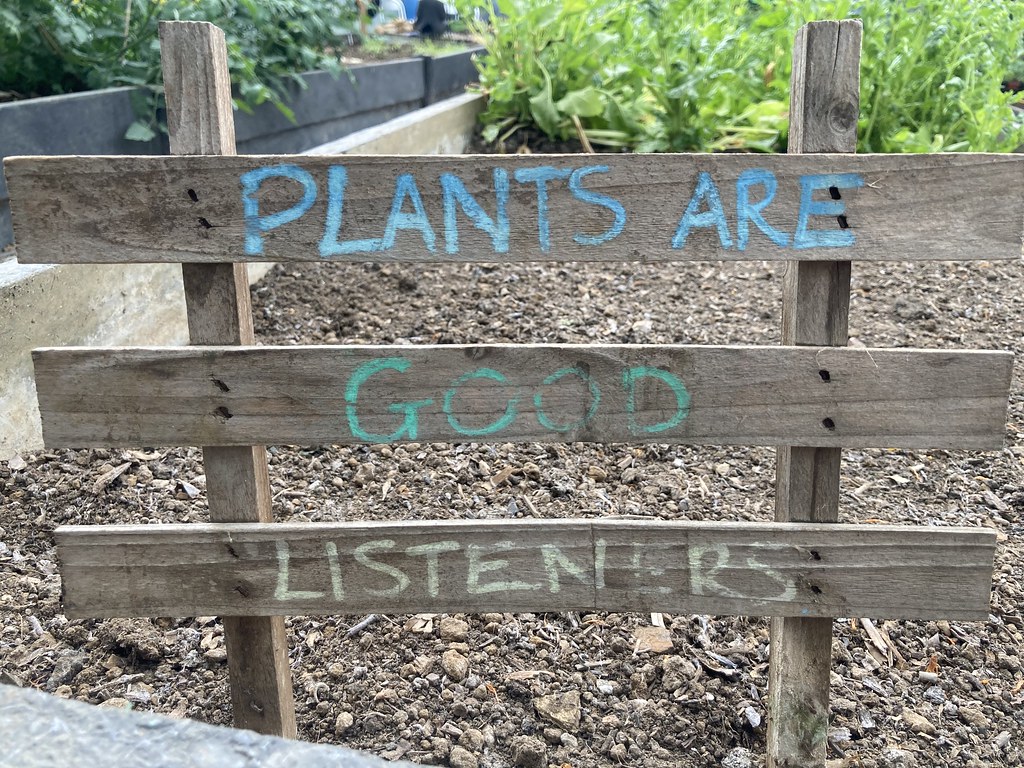
by Sammuel Yisrael
Sol Haven is a community garden where people grow. We focus on helping people overcome trauma through connection with nature and by using other wellbeing practices including mindfulness. It was initially developed to support people who are homeless or at risk from becoming homeless.
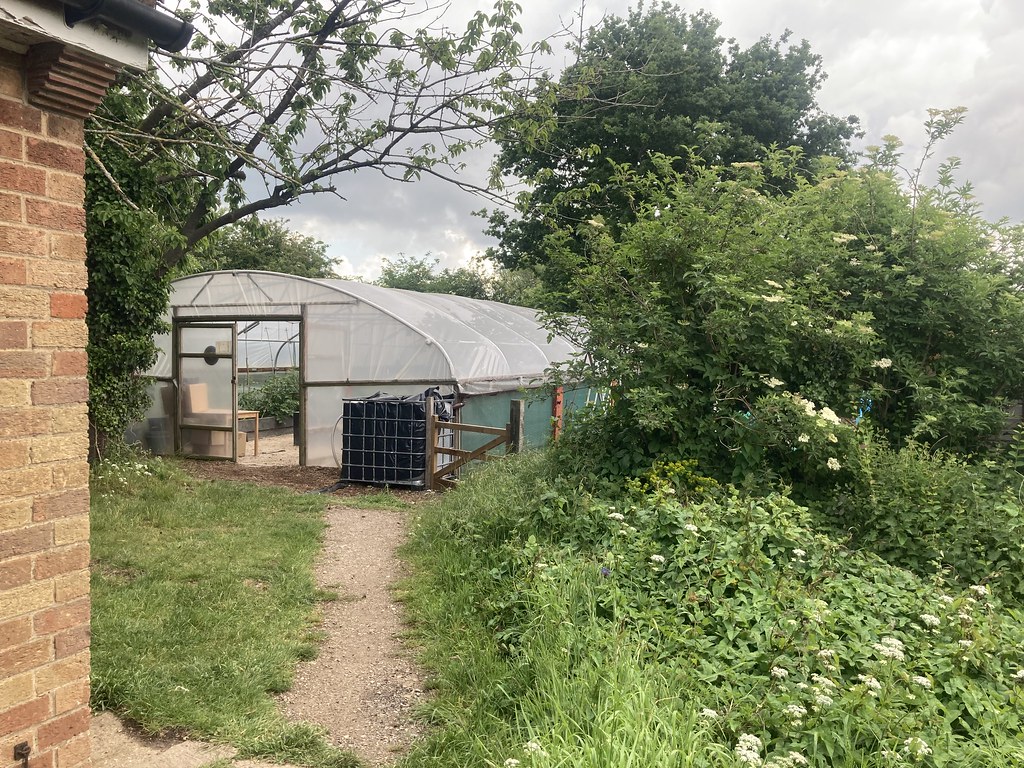
The project was started by my wife Natasha Caton and I because we both share a passion for sustainable agriculture and have personal experience of homelessness. Surviving several childhood challenges, and battling various addictions in her early life, Natasha became homeless at a young age. The people that helped her out of those dark places inspired her faith in the love of others and the joy of making a difference. I was involved with volunteer groups and communities working with homelessness, disability and people with learning disabilities from a young age – even going as far as Africa to work. Despite having a successful career in aerospace engineering I had my struggles with mental health issues and spent a period of time living in my car.
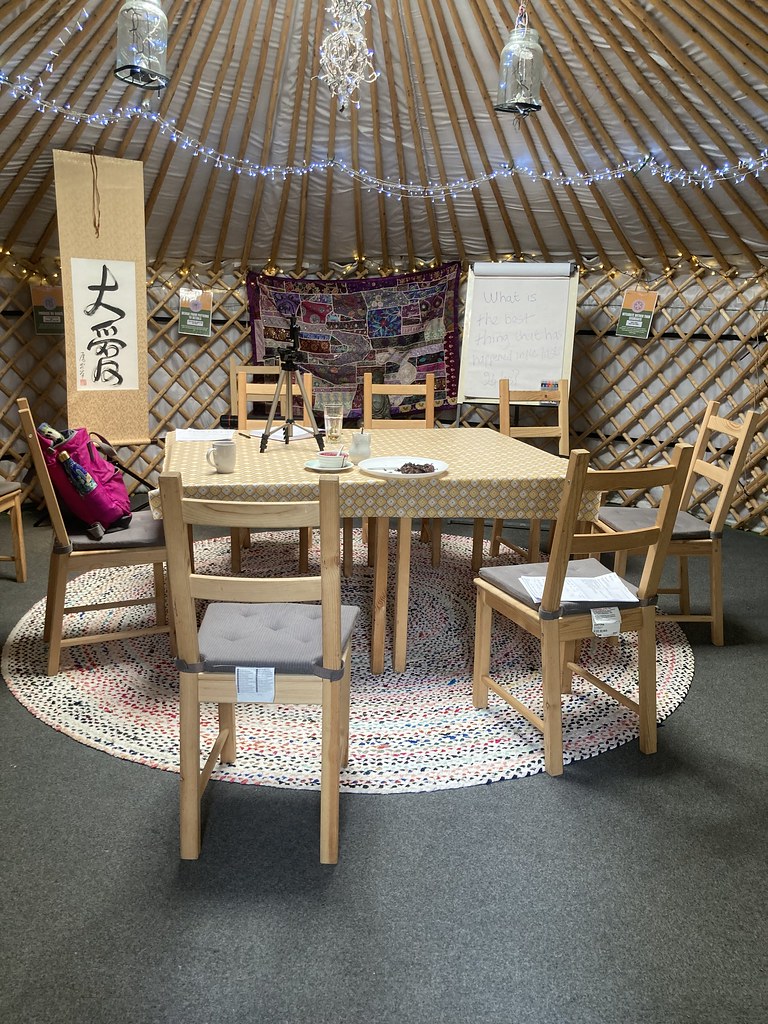
Through our national lottery funded programme ‘Ploughing the Mind’, we run a twelve week programme, with participants attending a two hour session every monday. The sessions alternate between mindfulness, personal development sessions in our mongolian yurt and practical, nature connection sessions out in the Sol Haven garden and polytunnel.
All of our sessions are based around the permaculture principles and Looby Macnamara’s design web. We find that the permaculture principles are as effective in creating a design for the wellbeing of oneself as they are for designing a garden. Principles such as ‘observe and interact’ help people to take stock of their relationship with themselves, each other and their environment so they can identify where growth and healing need to take place.
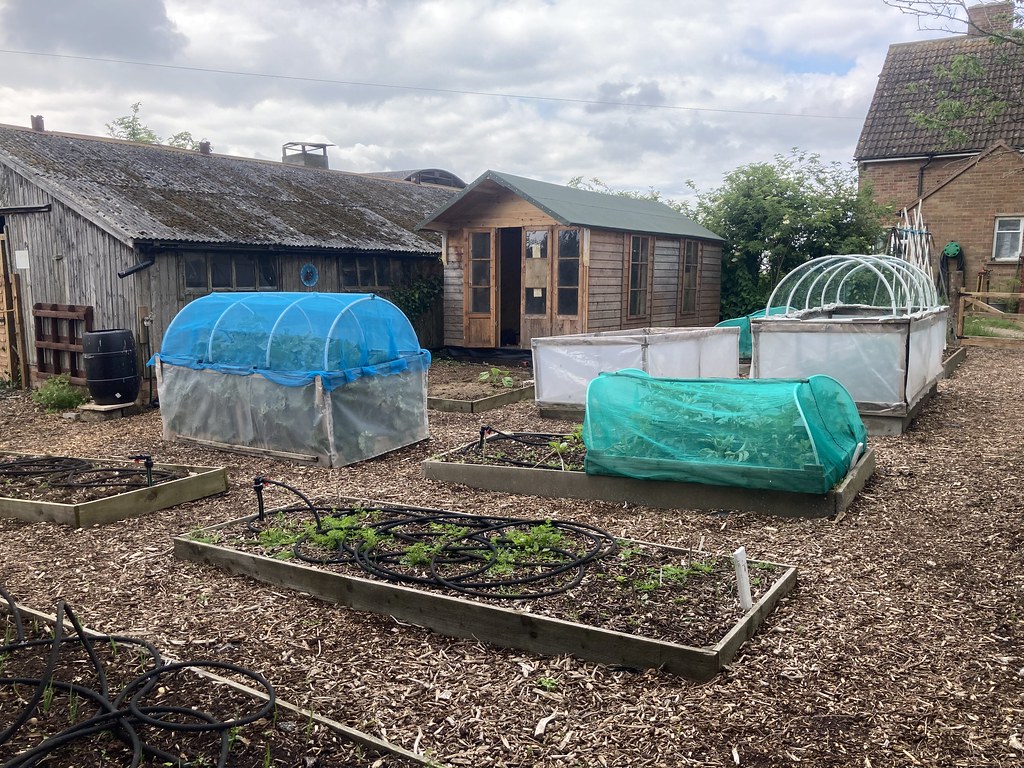
Both the project and the groups within it provide a much-needed community resource that have enabled people to overcome issues of social isolation and improved their confidence. We show people how to grow food and through planting fast yielding crops such as lettuce, they get to experience the whole life cycle from seed to plate.
They are involved in all aspects of garden work including planting, weeding, watering and construction projects alongside building a relationship with us and each other. Once participants have completed the twelve week programme, they are invited to continue being part of the project as volunteers once a week.
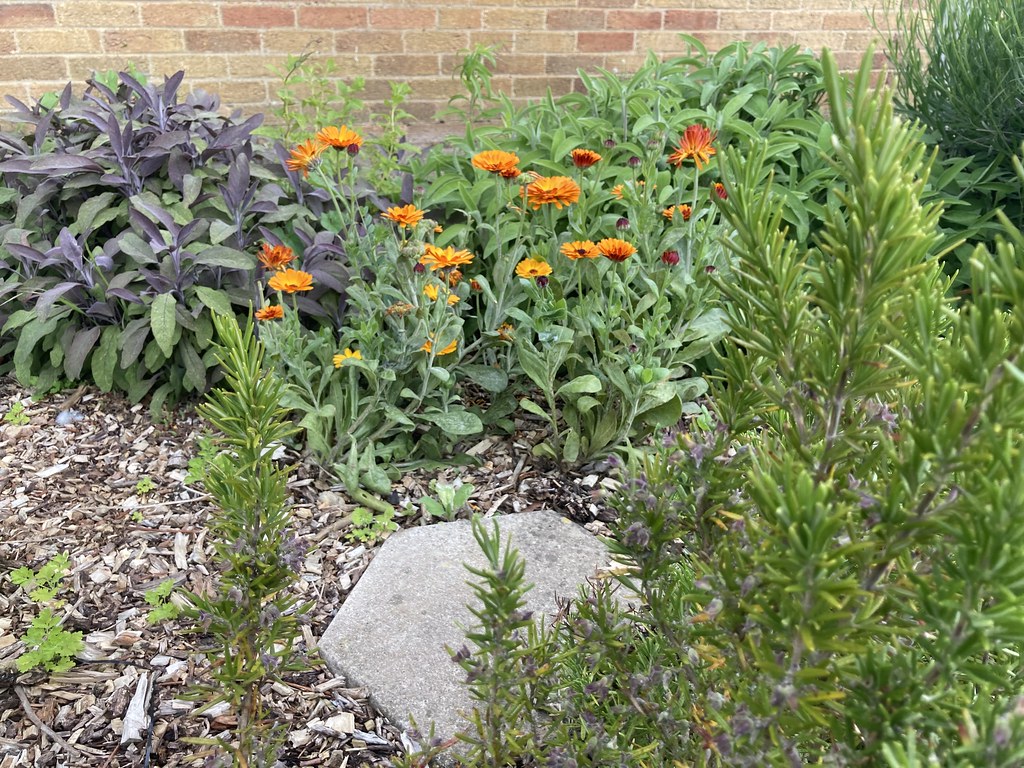
In this way we strengthen the local economy and create wealth by tackling worklessness, working with people who are unemployed, economically inactive, or actively out of work, by providing training on sustainable living skills.
Many people have commented on how the project has given them inspiration and increased energy, where they can rediscover and connect with themselves and other people. We have found that when people are able to overcome their insecurity and work together towards a common goal it reduces anxiety, feelings of social isolation and increases self esteem.
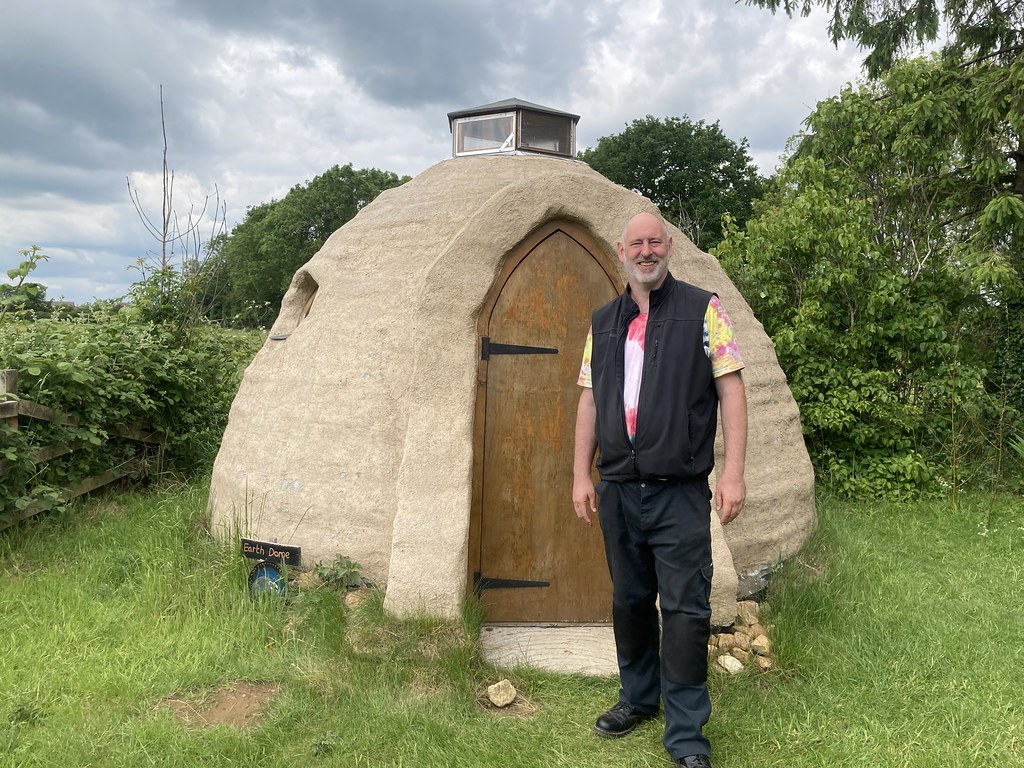
Our project is designed to give a feeling of space to help those recovering from trauma. Our beautiful earth dome was entirely built by hand using natural materials. The loving energy that went into creating the earth dome has provided a peaceful, tranquil, and intimate space for healing, with people often commenting it feels like walking into a big hug.
The polytunnel has wide walkways and high beds to accommodate wheelchair users and people with reduced mobility. It also has a seating area next to a water feature, where people are invited to sit, breathe and listen to the gentle sound of running water. As the work that we do with people here can be pretty intense, having lots of peaceful spaces where our participants can simply sit and experience a sense of wellbeing through nature is a key element of our design.
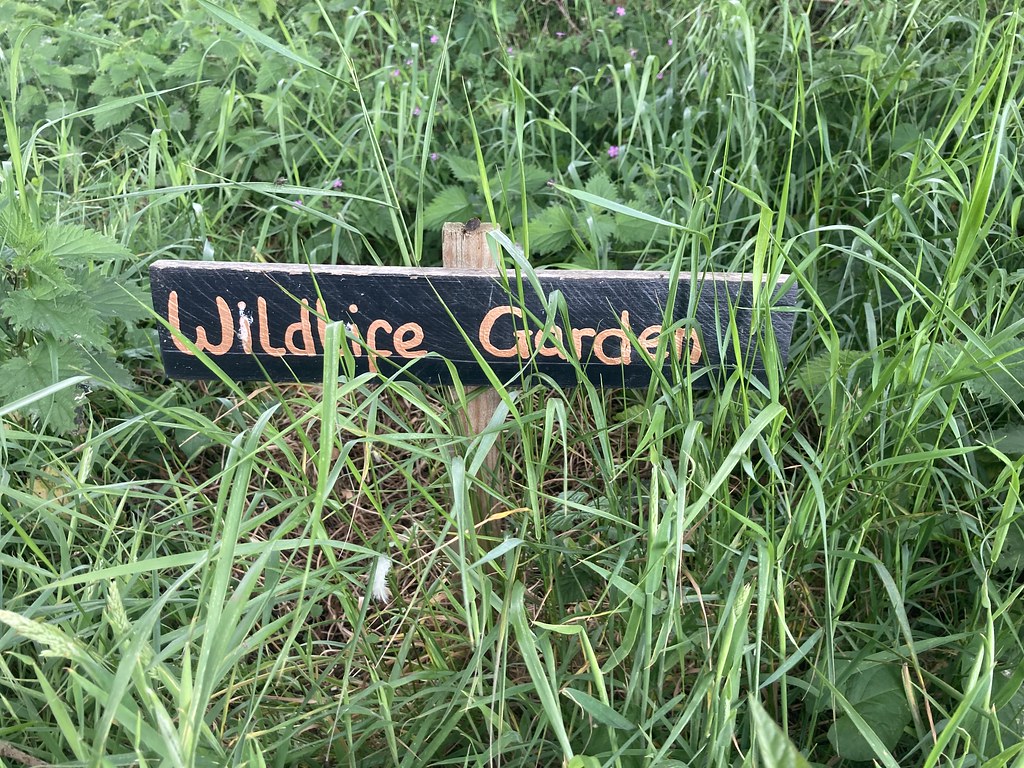
We have created a permaculture plan that will further develop the garden plot to give examples of different sustainable growing methods and are currently working towards becoming a LAND Centre while developing our seed to plate programme. We have established a sensory and herb garden, no dig raised beds for annual and perennial growing, compost area, hot beds and have begun the planting of our forest garden.
Our earth dome and mongolian yurt are great examples of low impact, handmade buildings and our polytunnel had been designed with a self watering bed system. We have also included signage for areas that are still to be developed including our wildlife garden. This helps our participants to engage with the future vision for the site and to understand that things can still be beautiful and valuable even if they are incomplete.
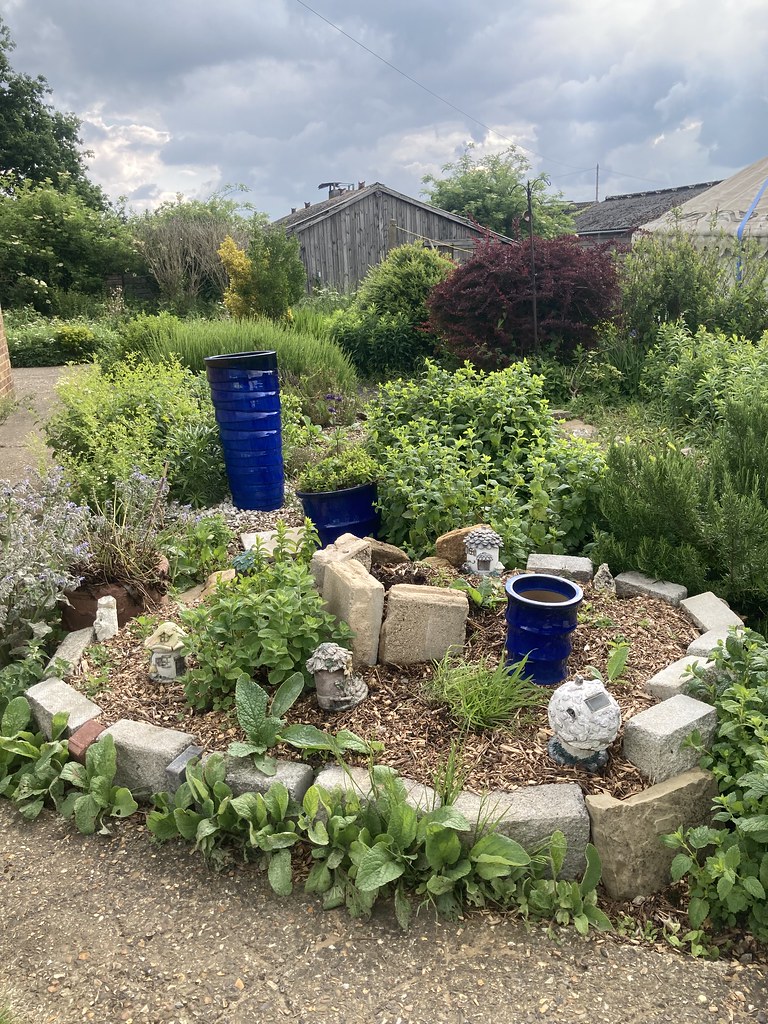
However, our bigger picture is to explore, develop and create a practical environment that can be used to determine a better today and brighter tomorrow. The true inspiration within this project is that it fulfils more than just a vision of future potential. By involving people who have very real needs today, it also encapsulates a genuine chance to change lives and build a community. From their earliest conversations and excited musings about the project, Natasha and I were determined that it would be a haven of work and development opportunity for those in need.
You can find out more about about Sammuel and Natasha's work at Sol Haven, plan your visit or get involved with the project by visiting their website or their Facebook page.
Watch this short video to hear them talk more about this fantastic project and their vision moving forwards.
Would you like to be featured in our monthly project spotlight? If you would then please contact [email protected]